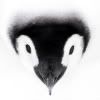
-- An ichthyosaur, a one-meter long fish-eating reptile -- from the new fossil site in China. (Credit: Image courtesy of University of Bristol)
New Fossil Site in China Shows Long Recovery of Life from the Largest Extinction in Earth's History
ScienceDaily (Dec. 23, 2010) — A major new fossil site in south-west China has filled in a sizeable gap in our understanding of how life on this planet recovered from the greatest mass extinction of all time, according to a paper co-authored by Professor Mike Benton, in the School of Earth Sciences, and published in the Proceedings of the Royal Society B. The work is led by scientists from the Chengdu Geological Center in China.
Some 250 million years ago, at the end of the time known as the Permian, life was all but wiped out during a sustained period of massive volcanic eruption and devastating global warming. Only one in ten species survived, and these formed the basis for the recovery of life in the subsequent time period, called the Triassic. The new fossil site -- at Luoping in Yunnan Province -- provides a new window on that recovery, and indicates that it took about 10 million years for a fully-functioning ecosystem to develop.
"The Luoping site dates from the Middle Triassic and contains one of the most diverse marine fossil records in the world," said Professor Benton. "It has yielded 20,000 fossils of fishes, reptiles, shellfish, shrimps and other seabed creatures. We can tell that we're looking at a fully recovered ecosystem because of the diversity of predators, most notably fish and reptiles. It's a much greater diversity than what we see in the Early Triassic -- and it's close to pre-extinction levels."
Reinforcing this conclusion is the complexity of the food web, with the bottom of the food chains dominated by species typical of later Triassic marine faunas -- such as crustaceans, fishes and bivalves -- and different from preceding ones.
Just as important is the 'debut' of top predators -- such as the long-snouted bony fish Saurichthys, the ichthyosaur Mixosaurus, the sauropterygian Nothosaurus and the prolacertiform Dinocephalosaurus -- that fed on fishes and small predatory reptiles.
Professor Shixue Hu of the Chengdu Group said: "It has taken us three years to excavate the site, and we moved tonnes of rock. Now, with thousands of amazing fossils, we have plenty of work for the next ten years!"
"The fossils at Luoping have told us a lot about the recovery and development of marine ecosystems after the end-Permian mass extinction," said Professor Benton. "There's still more to be discovered there, and we hope to get an even better picture of how life reasserted itself after the most catastrophic global event in the history of our planet."
Disclaimer: Views expressed in this article do not necessarily reflect those of ScienceDaily or its staff.
Story Source:The above story is reprinted (with editorial adaptations by ScienceDaily staff) from materials provided by University of Bristol.
Journal Reference:
- Shi-Xue Hu, Qi-Yue Zhang, Zhong-Qiang Chen, Chang-Yong Zhou, Tao Lü, Tao Xie, Wen Wen, Jin-Yuan Huang, Michael J. Benton. The Luoping biota: exceptional preservation, and new evidence on the Triassic recovery from end-Permian mass extinction. Proceedings of the Royal Society B, 2010; DOI: 10.1098/rspb.2010.2235
Got Penguins?
Penguin News Today
The Science of Penguins
The Gentoos are back! Come see them on live cam at:
Gentoo Penguins of Gars O'Higgins Station, Antarctica

__._,_.___
No comments:
Post a Comment